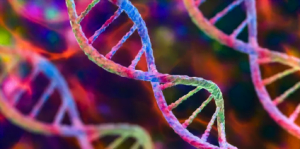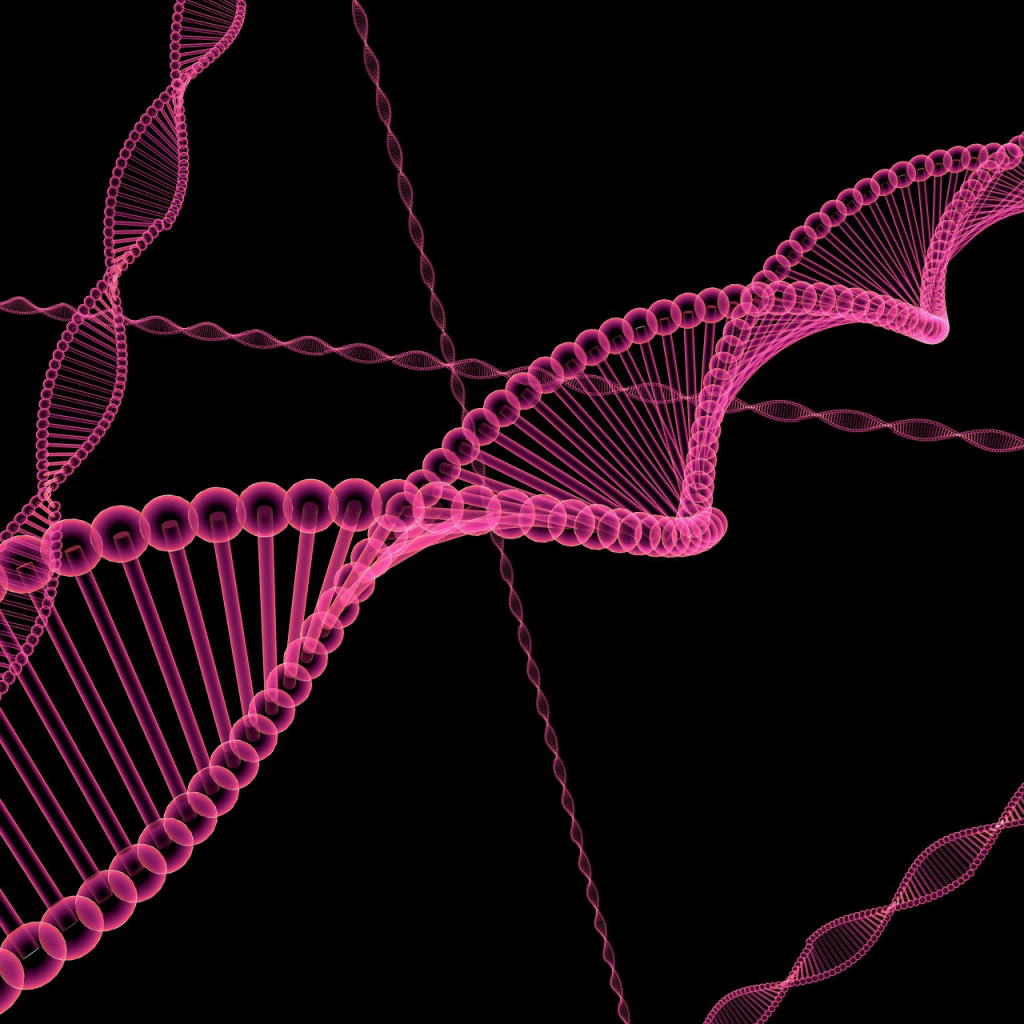
DNA polymerase is an enzyme that plays an important role in DNA replication and is essential for life processes. Without this important molecule, cells would be unable to divide and reproduce so the genetic information could not be copied and passed onto new cells. In this blog post, we will explore what exactly DNA polymerase does and why it is so important.
What is DNA Polymerase?
DNA polymerase is a protein that plays an essential role in DNA replication. Its important function is to synthesize the new complementary strands of DNA by adding nucleotides in the correct, predetermined sequence.
There are several different forms of DNA polymerase, but they all catalyze the same basic reaction – adding new individual nucleotides to a growing DNA strand.
DNA polymerase works by binding to a primer – a short stretch of nucleotides that acts as the starting point – and then adds complementary nucleotides one by one. It “reads” the original template strand and follows the base pairing rule to match up the correct nucleotide.
Zum Beispiel, if the template strand has a thymine (T) in a certain position, DNA polymerase will add an adenine (A) to the new growing complementary strand. This ensures the accuracy of the newly synthesized DNA strand.
What are the Vital Roles of DNA Polymerase?
Now that we understand the basics of what this enzyme does, let’s explore all the critical roles DNA polymerase plays in maintaining life:
1. DNA Replication
As described above, the main function of DNA polymerase is synthesizing new DNA strands during replication. It works on both the leading and lagging strands to duplicate the entire genome with remarkable precision.
Without DNA polymerase, DNA replication could not take place and cells could not divide. It is essential to this fundamental biological process.
2. Proofreading and Repairing DNA
Amazingly, DNA polymerase also can proofread and repair DNA. During replication, it checks for any incorrect nucleotides that may have accidentally been inserted.
If DNA polymerase detects an error, it removes the wrong nucleotide and replaces it with the correct one before continuing the replication process.
This proofreading activity ensures that DNA replication has an extraordinarily high fidelity and preserves the integrity of the genetic code.
3. Damage Repair
In addition to proofreading replication errors, DNA polymerase also plays a key role in repairing damaged DNA from external factors like radiation or chemicals.
It works by removing the damaged section of DNA and filling in the correct nucleotides based on the undamaged template strand.
Without DNA polymerase constantly repairing damaged DNA, errors would accumulate and quickly become lethal to the cell.
Why Understanding DNA Polymerase Matters
Advances in biotechnology have allowed scientists to harness the power of DNA polymerase for incredible innovations that improve our quality of life:
- PCR tests –Polymerase chain reaction (PCR) rapidly replicates DNA using DNA polymerase. This enables on-the-spot COVID tests and DNA fingerprinting in forensics.
- Gene editing –Revolutionary CRISPR gene editing technology relies on DNA polymerase to make precise edits to an organism’s genome. This could cure genetic diseases.
- DNA sequencing –DNA polymerase copies DNA for sequencing machines to read the order of bases and analyze a genome. This enables personalized medicine.
The more we understand this amazing enzyme, the more ways we can leverage it to enhance health, advance technology, further scientific knowledge, and even solve crimes!
How DNA Polymerase Does Work?
Now that we’ve covered the essential roles of DNA polymerase, let’s take a deeper look at how this intricate enzyme works to copy DNA so flawlessly:
The Mechanism
DNA polymerase adds nucleotides one by one to the 3′ end of a growing DNA strand. It detects which base is needed by pairing it with the template strand according to the base pairing rules (A-T, C-G).
A remarkable feature of DNA polymerase is that it can only extend in the 5′ to 3′ direction. It does not work in reverse. This ensures nucleotides are added in the correct order along one direction of the DNA strand.
High Fidelity
The accuracy of DNA polymerase is extremely high, making roughly one mistake per billion base pairs added! This is partially due to its double-checking “proofreading” ability.
It checks each newly added base before adding the next one, removing and replacing any incorrect nucleotides. This prevents errors from being locked into the DNA code.
Multiple Polymerases
There are 15 known human DNA polymerases, each with specialized roles in replication, repair, and other processes. The coordination of these different polymerase enzymes accounts for the incredible precision of DNA synthesis.
Zum Beispiel, polymerase δ works on the lagging strand while polymerase ε works on the leading strand during replication.
Processivity
DNA polymerase can sequentially add thousands of nucleotides without detaching from the DNA strand. This processivity enables it to rapidly synthesize very long stretches of DNA, allowing large genomes to be accurately replicated.
The mechanisms that make DNA polymerase so accurate and efficient are a marvel of natural engineering. Scientists are just beginning to fully understand them.
Abschluss
DNA polymerase is an enzyme that catalyzes the replication of DNA during cell division, ensuring each new cell receives an exact copy of the genetic code. It synthesizes new DNA strands by adding nucleotides in the correct order based on base pairing rules.
DNA polymerase also proofreads replication errors and repairs damaged DNA. Our understanding of its mechanisms has enabled countless biotechnology breakthroughs that improve medicine, forensics, gene editing, und mehr. The next time you take a DNA test or hear about a new genetic therapy – thank DNA polymerase!
FAQs
How many different types of DNA polymerase are there?
15 main types of DNA polymerase have been identified in humans so far. Each has specialized roles, including DNA polymerase α, B, γ, δ, ε and κ. The coordination of these various polymerases accounts for the amazing speed and precision of DNA replication.
What is the difference between DNA polymerase and RNA polymerase?
DNA polymerase synthesizes DNA strands while RNA polymerase synthesizes RNA strands. They are distinct but related polymerases. DNA polymerase requires a DNA template, while RNA polymerase requires a DNA template to transcribe genetic information into messenger RNA.
Can DNA polymerase work without a primer?
NEIN, DNA polymerase cannot add nucleotides without a primer to start from. The primer provides the free 3’ OH group that DNA polymerase needs to attach a new nucleotide and extend the strand. Primers are usually short RNA sequences synthesized by primase during replication.
